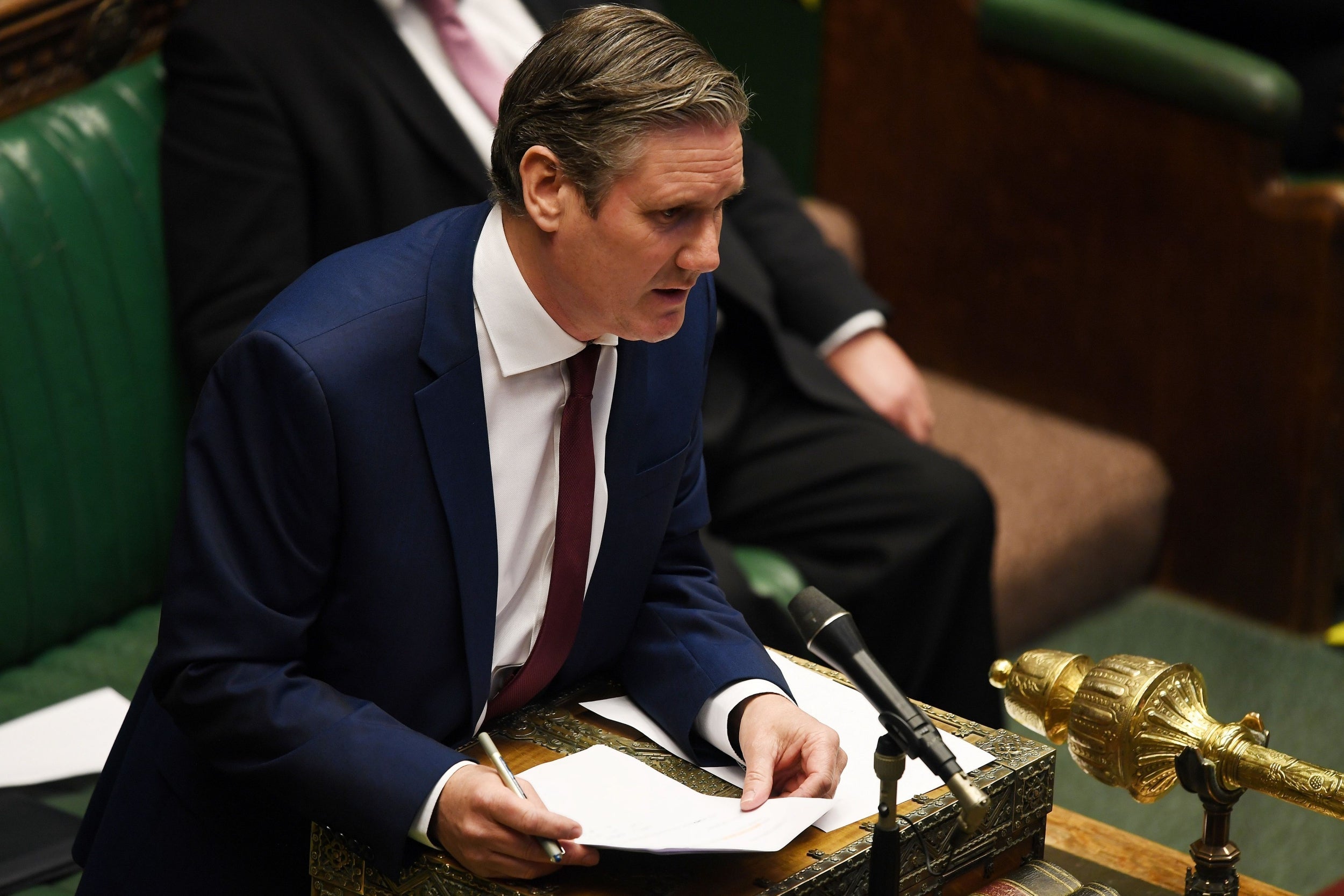Keir Starmer’s forensic unpicking of Boris Johnson at PMQs could set the template for Labour
Editorial: The approach from the leader of the opposition could be readily adapted towards issues like Brexit

How on earth did it come to this?” With great economy of language, Sir Keir Starmer, in his first question in his first Prime Minister’s Questions with Boris Johnson summed up the mood of a bewildered nation.
Britain is waking up to the realisation that it is suffering the worst Covid-19 death toll in Europe, and not enjoying the “apparent success” the prime minister boasts.
It was a smart question, put with the right “tone”, to use a topical term. Overall the Labour leader’s performance was, as is so often said, a “forensic” take down. Sir Keir made it look easy. The prime minister was left floundering, unable, under social distancing, to get a cue from ministers sitting at his side.
Robbed of Jeremy Corbyn and a phalanx of braying backbenchers, Mr Johnson is not at home in the new parliamentary “normal”. No longer will a few Oxford Union style wisecracks about “Caracas policies” suffice. Mr Johnson was accused of being slow on the lockdown, slow on testing, and slow on protective equipment, and of hypocrisy in publishing and then rejecting international comparisons. Those will be powerful recurring themes in the months ahead, and rightly so.
Sir Keir’s attack also set a wider theme – the empty optimism of the Conservatives, set against a practical, down to earth, realistic unideological opposition. Such an approach could be readily adapted to the coming Brexit debacle, to the vague “levelling up” project for the North, to an underinvested slow-growth economy, and to the UK’s precarious public finances.
If this is how the new Labour leader is going to test the government and prepare for the next general election then it gives great hope for a return, after more than a decade, to competitive party politics. That can only be a good thing.
Of course, Mr Johnson could have no reply to how things came to this without implicating himself and his party. The nearest he came to an answer, which came after a subsequent, equally on-topic, query from Sir Keir, was an implicit admission of the failure on testing. Rather than attempt to defend the government’s record, the prime minister virtually admitted that the reason why testing and tracing of suspected cases was abandoned on 12 March was not because of some high-powered epidemiological research guided by science, but merely because they had too few testing kits and too few people to track down potential spreaders.
Matt Hancock, the health secretary had admitted as much a little earlier to Kay Burley on Sky News. Mr Hancock was like a general justifying a tactical retreat on the grounds that his soldiers had run out of bullets, but lessons would certainly be learned for the next war. It might be honest and true; but it doesn’t impress anyone.
In a tight corner on testing – he would have seen it coming – Mr Johnson instead deployed a familiar distraction technique, and threw up some flak. A pattern has emerged here: the standard response to any failure to reach a goal is to announce a new, even more ambitious, even more headline-grabbing goal.
So, now that the target of 100,000 tests a day by the end of April seems unattainable on a sustained basis, the new target will be 200,000 tests a day by the end of May. When that is missed presumably there will be another target to 400,000 by the end of June. The prospect of success, if not the reality, can expand exponentially inside the minds of the cabinet. No matter that Mr Johnson himself has already, two months ago, set a target of 250,000 tests for Covid-19 per day, albeit with no deadline set for it. Mr Johnson will soon find himself beyond a joke.
Yet no one, least of all Sir Keir, need get carried away. Prowess at PMQs, in itself, is no guarantee of broader political success: just ask William Hague who did similar to Tony Blair most weeks for four years and was rewarded with a net gain of one seat at the 2001 general election.
Even now the Conservatives luxuriate in a polling lead of about 20 points over Labour, and Mr Johnson’s personal ratings are relatively buoyant. Then again, it is early days, there’s a pandemic on, and Sir Keir, like most of his team, are virtually unknown to the public.
They will each need to prove their competence as a government-in-waiting and Labour will need to resolve its policy differences with the British people. Still, in strange circumstances, there are early signs of a more determined and competent opposition. It makes a refreshing change.
Join our commenting forum
Join thought-provoking conversations, follow other Independent readers and see their replies
Comments